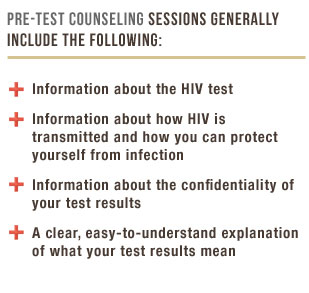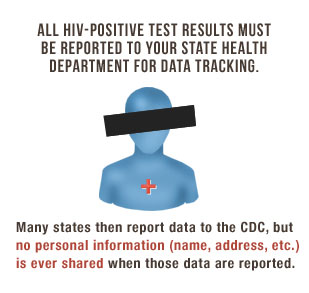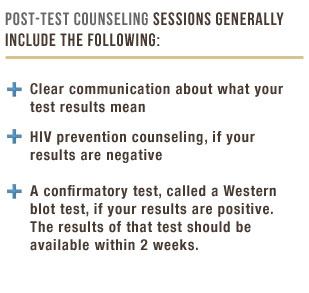What Your Test Results Mean - Negative Test Result
Studies have proven that both conventional and rapid HIV tests are highly accurate when they show an HIV-positive result.
But a negative result may not always be accurate. It depends on when you might have been exposed to HIV and when you took the test.
It takes time for seroconversion to occur. This is when your body begins to produce the antibodies an HIV test is looking for—anywhere from 2 weeks to 6 months after infection. So if you have an HIV test with a negative result within 3 months of your last possible exposure to HIV, the CDC recommends that you be retested 3 months after that first screening test.
A negative result is only accurate if you have had any risks for HIV infection in the last 6 months—and a negative result is only good for past exposure. If you get a negative test result, but continue to engage in high-risk behaviors, you are still at risk for HIV infection. For a brief list of HIV risk factors please see the CDC HIV/AIDS basic information page at http://www.cdc.gov/hiv/topics/basic/index.htm#risk.
What Your Test Results Mean - Positive Test Result
If your initial HIV test comes back positive, you will automatically be offered a confirmatory test. If the confirmatory test is also positive, you will be diagnosed as “HIV-positive.”
At this point, the person giving you your test results will discuss what having HIV means for you and your health. You will be informed about how the virus can affect you and how to protect others from becoming infected. You will also be informed about resources and treatments available to you. Finally, you will be referred to a medical professional for follow-up treatment.
Next Steps if you are HIV-positive
If you are diagnosed with HIV, you should do the following things—even if you don’t feel sick:
- Find a doctor or licensed healthcare provider who has experience treating HIV. It is important to maintain a relationship with a healthcare provider you trust. Contact your local health department for a referral if you don’t know how to find a provider with HIV experience.
- Get screened for other sexually transmitted diseases (STDs) and for TB (tuberculosis). Undetected co-infections, such as STDs and TB, can cause serious health complications—and having HIV makes you more vulnerable to those complications.
- Maintain a healthy lifestyle. This is crucial for success in treating HIV. Smoking, drinking too much, or taking illegal drugs can weaken your immune system, allowing the virus to replicate and grow.
- Safer sex practices are very important. Condoms are very effective in preventing HIV transmission when used correctly and consistently.
- Tell your partner(s) about your HIV status before you have any type of sexual contact (vaginal, anal, or oral) and don’t share needles or syringes.
Additional Resources
Last revised: 08/05/2009



